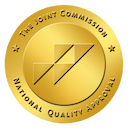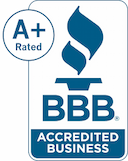El Paso, Texas Drug Treatment Centers and Alcohol Rehab Information
In 2018, 22% of adults in El Paso reported binge drinking within a 30-day period.1 Amid the pandemic, health experts are seeing a dramatic rise in that trend, with the highest rates in El Paso men between the ages of 30-44.1
Fortunately, there is help for those struggling with substance use disorders.
If you or someone you love is addicted to drugs or alcohol, there is hope. We’ve created this guide to assist you in finding the right treatment.
Rehab for Drug and Alcohol Addiction Near El Paso, TX
There are 20 alcohol and drug rehabs within 50 miles of El Paso, TX.2 Rehab facilities in El Paso, TX, offer the treatment and therapy needed to help people recover from addiction and create a brighter future for themselves and those who love them. Drug and alcohol treatment centers in El Paso provide a range of addiction treatment services with caring and compassionate staff in healthy and safe environments.
In some cases, getting out of Texas may benefit patients whose home life is too triggering. For those looking for treatment outside of Texas, Desert Hope Treatment Center, located in Las Vegas, Nevada, offers a full continuum of rehab care and specialized addiction treatment programs for veterans and first responders tailored to their unique needs.
What Types of Treatment Are Available for Overcoming Addiction?
When researching rehab facilities in El Paso, TX, it’s essential to look for one that will create an individualized treatment plan for you. Treatment for addiction to alcohol is different from treatment for addiction to opioids, and so it’s crucial that the facility you choose offers a variety of treatment types:
- Medical Detox. Patients are medically monitored 24/7 while their body detoxes from substances. Medical detox usually lasts between five and seven days.
- Inpatient Rehab. Patients who arrive at rehab in an acute or unstable medical condition may be referred to inpatient rehab. Here they will be medically supervised 24/7 while attending individual and group therapy sessions.
- Residential Treatment. Residential treatment patients reside at the treatment facility where staff are accessible to them 24/7.
- Partial Hospitalization Program (PHP). Patients receive therapy six hours per day, five days per week while living away from the facility.
- Intensive Outpatient Program (IOP). Patients live away from the facility and receive therapy three days per week for at least three hours per day.
- Outpatient Program. This program is not as intensive as IOP and is tailored to the individual patient’s needs.
- Sober Living/Aftercare. Your treatment plan should also include an aftercare plan. Continued support and individual therapy after leaving treatment increase the odds of maintaining long-term sobriety.
Covering the Cost of Rehab
There are several factors that determine the cost of alcohol and drug rehab. These include:
- Location. Whether you choose a facility close to home or travel to another state, location can impact the cost of treatment.
- Type of treatment. The types of treatment (inpatient, outpatient, etc.) will factor into the cost of treatment.
- Therapies. Evidence-based therapy is always a part of treatment. Therapy may vary if you have co-occurring conditions such as anxiety or depression.
- Medications. If you are prescribed medications, this will impact the cost of treatment.
- Duration of program. Depending on the initial intake assessment, treatment can last anywhere between 30, 60, or 90 days.
Cost should never be a barrier to receiving help. The most common payment method used for rehab is health insurance. Your health insurance may cover some rehab costs, so it’s important to verify that the rehab you choose accepts coverage from your provider. If they do not, or if you don’t have insurance, most facilities will assist you in learning how to pay for drug and alcohol rehab.
Desert Hope Treatment Center, located in Las Vegas, Nevada, offers award-winning care in a safe and welcoming environment. Patients benefit from their high-quality program and continuum of care while also enjoying the facilities’ many activities and amenities. Additionally, Desert Hope offers specialized treatment programs for Veterans and first responders tailored to their unique needs.
Verify Your Insurance for Rehab Treatment
You can quickly and easily verify your insurance coverage for rehab using our . We’ll ask for just a few details and we’ll email you the results about what your plan may cover within just minutes.
Are You Struggling With Addiction?
Drug and Alcohol Statistics for El Paso County
Illicit Drug Use and Overdose Deaths
Between 2017-2019, there were 271 drug overdose deaths in El Paso County. Opioids, including Fentanyl, are a significant contributor to this trend.4 In fact, since 2000, overdose deaths across the U.S. involving opioids have increased by 200%.5
For those seeking help to change their lives, we offer many substance abuse resources to begin the road to recovery.
Excessive Drinking and Alcohol-Related Driving Deaths
Impaired driving poses a significant threat to county residents as well. Between 2015-2019, there were 104 auto fatalities directly attributed to alcohol-impaired driving.5 In 2018, approximately 10,500 people across the country died in alcohol-related automobile accidents.6
Get Admitted to Addiction Treatment Near El Paso
If you or a loved one is struggling with addiction, we can help. The admissions navigators at our Las Vegas rehab are available around the clock to discuss your treatment options and answer any questions you may have about our programs, payment options, and more.
It’s never too late to get the support you need and deserve. Call to start addiction treatment and begin the path to recovery today.




